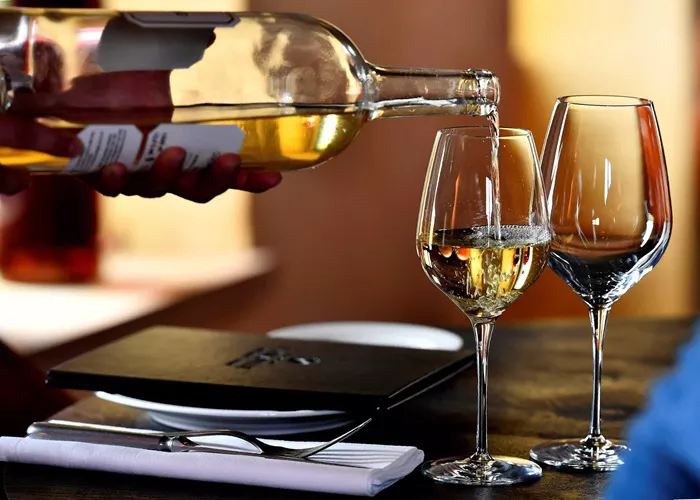Spirits are a category of alcoholic beverages that have a high alcohol content and distinct characteristics. In this extensive essay, we will explore why spirits are alcohol, delving into the various aspects of their production, composition, and effects.
The Process of Distillation
Distillation is the key process that makes spirits alcohol. It involves heating a fermented liquid to vaporize the alcohol, which is then condensed and collected.
1. Fermentation
Before distillation can occur, a fermented liquid must be produced. Fermentation is the process by which yeast converts sugars into alcohol and carbon dioxide. The fermented liquid can be made from a variety of sources, such as grains, fruits, or potatoes.
2. Distillation Equipment
Distillation is typically carried out using a still, which is a device that heats the fermented liquid and separates the alcohol from other components. There are different types of stills, including pot stills and column stills, each with its own advantages and disadvantages.
3. Distillation Process
The distillation process involves heating the fermented liquid to a specific temperature, causing the alcohol to vaporize. The vapor is then passed through a condenser, where it is cooled and condensed back into a liquid. This liquid, known as the distillate, contains a higher concentration of alcohol than the original fermented liquid.
Alcohol Content in Spirits
The high alcohol content of spirits is a result of the distillation process. The ABV of spirits can vary depending on several factors, including the type of spirit, the production methods, and the intended use.
1. Factors Affecting Alcohol Content
Several factors can affect the alcohol content of spirits. These include the type of fermented liquid used, the strength of the yeast, the duration of fermentation, and the number of distillations.
2. Regulation of Alcohol Content
In most countries, there are regulations governing the alcohol content of spirits. These regulations are in place to ensure consumer safety and to prevent the production of overly strong or dangerous beverages.
Flavor and Aroma of Spirits
In addition to their high alcohol content, spirits are known for their unique flavors and aromas. These are created through a combination of factors, including the type of fermented liquid, the distillation process, and any additional flavorings or aging.
1. Sources of Flavor and Aroma
The flavor and aroma of spirits can come from a variety of sources. These include the natural flavors of the fermented liquid, the compounds produced during distillation, and any added flavorings or botanicals.
2. Aging and Maturation
Many spirits are aged or matured in barrels or other containers to develop additional flavors and smoothness. The type of container, the length of aging, and the conditions of storage can all have an impact on the final flavor and aroma of the spirit.
Effects of Spirits on the Body
Spirits, like all alcoholic beverages, can have various effects on the body. These effects are primarily due to the alcohol content and can range from mild relaxation to more serious health consequences.
1. Short-Term Effects
In the short term, consuming spirits can cause feelings of relaxation, euphoria, and decreased inhibitions. However, it can also lead to impaired judgment, coordination, and reaction time.
2. Long-Term Effects
Long-term consumption of spirits can have more serious health consequences, including liver damage, increased risk of certain cancers, and mental health issues. It is important to consume spirits in moderation and be aware of the potential risks.
Cultural Significance of Spirits
Spirits have played an important role in many cultures throughout history. They have been used in religious ceremonies, social gatherings, and as a form of currency.
1. Historical Significance
Spirits have a long history dating back thousands of years. They have been produced and consumed by different civilizations around the world, and their production and consumption have often been associated with cultural and social events.
2. Social and Cultural Context
In many cultures, spirits are an important part of social gatherings and celebrations. They are often served as a symbol of hospitality and friendship, and their consumption can be a way to bond with others.
See Also: Alcohol vs. Spirit: Are They The Same?
Spirits and Mixology
Spirits are a key ingredient in many cocktails and mixed drinks. Mixologists use spirits to create a wide variety of flavors and combinations, adding to the popularity and versatility of these beverages.
1. Cocktails and Mixed Drinks
Cocktails and mixed drinks are made by combining spirits with other ingredients such as juices, syrups, and bitters. The combination of different spirits and flavors can create unique and delicious drinks.
2. Role of Spirits in Mixology
Spirits play a crucial role in mixology, as they provide the base flavor and alcohol content for many cocktails. Mixologists carefully select spirits based on their flavor profiles and characteristics to create balanced and enjoyable drinks.
Conclusion
In conclusion, spirits are alcohol because they are produced through a process of distillation that increases their alcohol content. The high alcohol content gives spirits their unique characteristics, including strong flavors, aromas, and effects on the body. Spirits have a rich history and cultural significance, and they are an important part of the world of alcoholic beverages. Whether enjoyed neat, on the rocks, or in a cocktail, spirits offer a wide range of flavors and experiences for consumers. However, it is important to consume spirits in moderation and be aware of the potential risks associated with excessive alcohol consumption.
You might be interested


